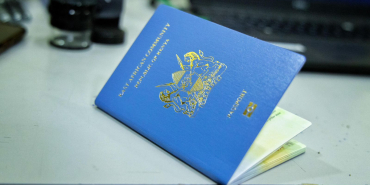Trump Administration Ends Bond Hearings for Undocumented Migrants, Increasing Detentions

The Trump administration is implementing a policy shift that eliminates bond hearings for undocumented migrants contesting deportation.
The move is poised to drastically increase the number of individuals held in federal immigration detention. The policy, outlined in a July 8 directive from acting Immigration and Customs Enforcement (ICE) Director Todd Lyons, reinterprets existing immigration law to mandate detention without the possibility of release for migrants who entered the United States unlawfully.
The directive instructs ICE personnel to treat immigration statutes as categorical bars to release following arrest, effectively nullifying the discretionary bond hearings that have historically allowed detainees to argue for their freedom while awaiting court proceedings. Lyons' memo further encourages ICE prosecutors to pursue alternative legal arguments to justify continued detention, signalling a more aggressive approach in immigration courtrooms nationwide.
This policy reversal coincides with President Donald Trump’s renewed push for mass deportations, a central tenet of his second-term agenda. The administration frames the initiative as a corrective to what it characterises as lax enforcement under former President Joe Biden, and it has secured congressional funding to expand detention capacity. A recently passed spending bill allocates resources to detain at least 100,000 individuals daily—nearly double the record 58,000 held in late June.
Critics argue that denying bond hearings undermines due process and risks indefinite detention for individuals who may have legitimate claims to remain in the country. Tom Jawetz, a former senior official at the Department of Homeland Security under the Biden administration, described the policy as “a radical departure that could explode the detention population”.
With the removal of judicial discretion, ICE now has the authority to detain migrants for the duration of their removal proceedings, which can span months or years. This raises concerns about overcrowding in detention centres, many of which are already operating beyond capacity. Reports from advocacy organisations suggest conditions in some facilities have deteriorated, with detainees facing limited access to legal counsel, inadequate medical care, and prolonged isolation.
The administration defends the policy as a necessary measure to enforce immigration laws and deter unlawful entry. Lyons’ memo cites statutory language stating that migrants “shall be detained” after arrest, interpreting this as a prohibition on release. This reading diverges from previous administrations’ understanding, which allowed for bond hearings in cases where individuals posed no flight risk or threat to public safety.
While the Department of Homeland Security and ICE have not publicly commented on the memo, its implementation has already begun to reshape immigration court practices. The American Immigration Lawyers Association reports that migrants have been denied bond hearings in over a dozen jurisdictions, including New York, Virginia, and Georgia. Legal challenges are expected, with civil rights groups preparing to contest the constitutionality of blanket detention policies.
This development marks a pivotal moment in US immigration enforcement, reflecting a broader trend toward punitive measures and expanded executive authority. As the administration ramps up efforts to deport one million individuals within the year, the elimination of bond hearings signals a shift from adjudication to containment—a strategy that prioritises detention over discretion.
The courts may scrutinise this interpretation, but for now, the policy stands as an illustration of the Trump administration’s commitment to reshaping the immigration system through executive action, legislative backing, and a redefinition of legal norms. The policy will impact millions of migrants who entered the US unlawfully.








Add new comment